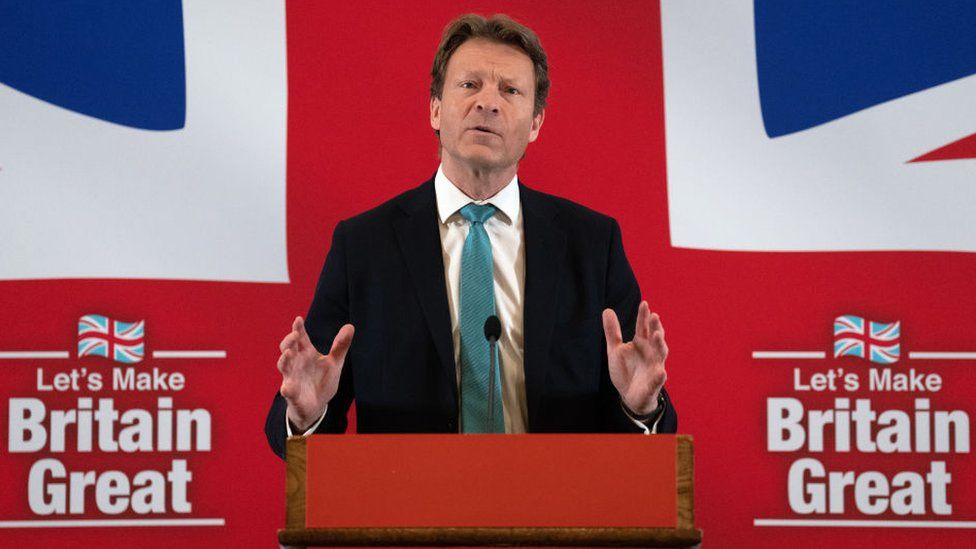ARTICLE AD BOX
 Image source, Getty Images
Image source, Getty Images
Reform UK - formerly the Brexit Party - has made little headway in England's local elections.
The party, founded in 2018 with Nigel Farage's backing, fielded hundreds of candidates, mainly in areas that had voted heavily to leave the EU in 2016.
But with most results now declared, Reform has won just six seats, averaging just 6% of the vote in the wards where it stood.
In the last equivalent poll in 2019, UKIP averaged 19% in wards it fought.
At the time, Prime Minister Theresa May had failed to get her Brexit deal through the Commons - and the UK was yet to leave the European Union.
Weeks later, the then-Brexit Party would go on to win the UK's elections to the European Parliament, by which time Mrs May had resigned as Tory leader - paving the way for Boris Johnson to enter Downing Street.
The political influence of Reform - now led by former MEP Richard Tice - has waned since then, but it has been ahead of the Green Party and the Lib Dems in some national opinion polls.
On Friday, Mr Tice told The Telegraph his party had "changed the course of numerous seats" in the local elections, at the Tories' expense.
On Reform's failure to make greater inroads, he added: "Look, Rome was not built in a day. We're a new party. First-past-the-post is brutally hard, which is why we support proportional representation."
In January, Mr Tice said he was on a mission to ensure the Conservatives "never have a majority government again".
Both the Tories and Labour had run out of ideas to fix "broken Britain", and only his party offered "bold, brave solutions", he argued.
Reform, which has no MPs, says it plans to field candidates in every constituency in England, Scotland and Wales at the next general election.
UKIP, whose political fortunes have declined sharply since Mr Farage stood down as its leader in 2016, has so far lost all the seats it was defending in these elections.
But party chairman Ben Walker dismissed claims the party had been wiped off the electoral map, saying: "The seats being reported as being lost today haven't been our seats for some time due to defections to other political parties or independents. "UKIP still has elected councillors across the country on various councils."
In 2014, the defection of Tory MPs Douglas Carswell and Mark Reckless, and the wider electoral threat thought to be posed by UKIP to the Conservatives, were major factors in prompting then-Prime Minister David Cameron to announce a referendum on Britain's future in the EU.

 1 year ago
21
1 year ago
21








 English (US)
English (US)